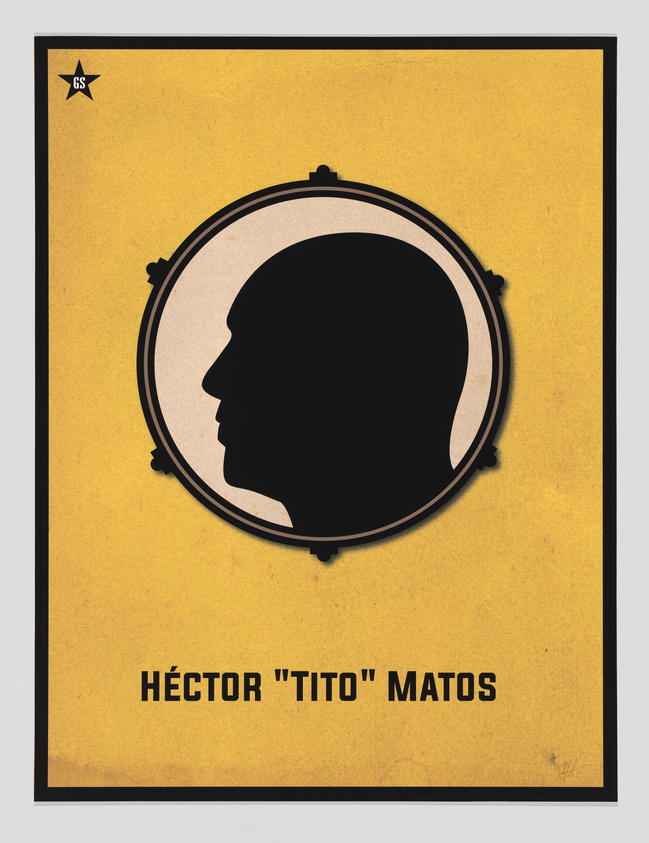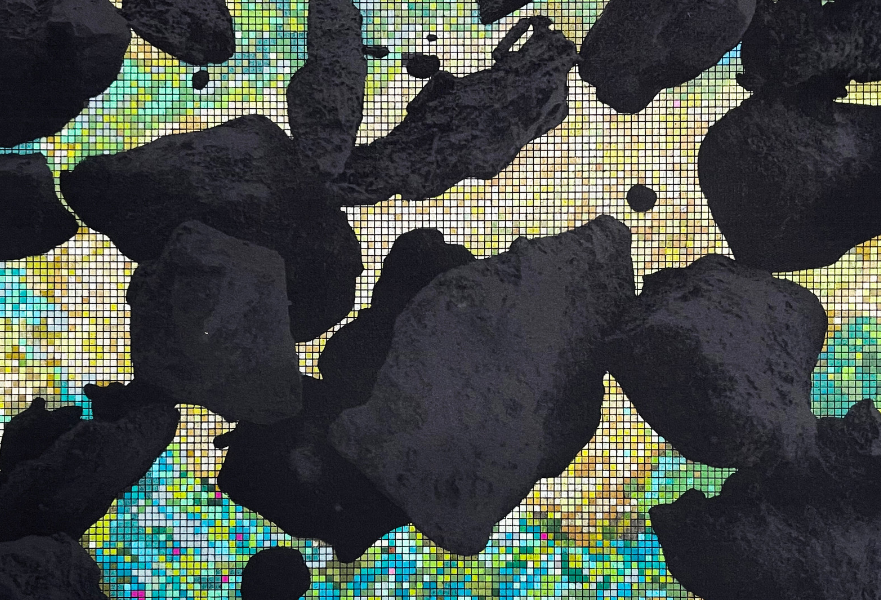Garvin Sierra Vega, three monitors and thirty-seven printed works from a series of digital posters posted on Instagram, 2019–22
Nov 1, 2022
0:00
Garvin Sierra Vega, three monitors and thirty-seven printed works from a series of digital posters posted on Instagram, 2019–22
0:00
Garvin Sierra: I’m Garvin Sierra, a visual artist.
I work with posters in my everyday life, about certain situations that are experienced both in Puerto Rico and internationally, including the United States; such as processes or situations we Puerto Ricans are subjected to daily, in a situation that is, well, also colonial. The vast majority are on social media. They’re digital posters; they are meant to be a kind of communication or visual record of our situation; there’s a bit of everything here.
Narrator: Some of the posters protest the official response to Hurricane Maria; others respond more broadly to colonialism and the government of Puerto Rico.
Garvin Sierra: The government hid, suppressed, and did not talk about the realities. Maria happened, and the government said that sixty-four Puerto Ricans had died because of Hurricane Maria, and then there was a study, by I do not remember which university in the United States, a study about deaths, and it was 4,645 Puerto Ricans who died here because of the hurricane. Maybe it was not directly, but from a lack of water, lack of electricity, lack of food.
In that process, Puerto Ricans, residents, began to realize that enormous injustices were taking place in the country. On, I think, the first of July, a government social-media chat came to light, in which the governor, the secretary of state, different people from very important government agencies, mocked the dead, the LGBT community—it was an 800-page chat published by the Center for Investigative Journalism, and that chat revealed a reality about how the government was treating us, how the government hides so many things from us, and how they ridiculing the country. The list goes on and on, and because of this, it became known internationally, and there started to be movements demanding resignation of then-Governor Ricardo Rosselló.
Narrator: Massive protests that took place across Puerto Rico and the diaspora in the summer of 2019, leading to Ricardo Rosselló’s resignation on August 2nd.


